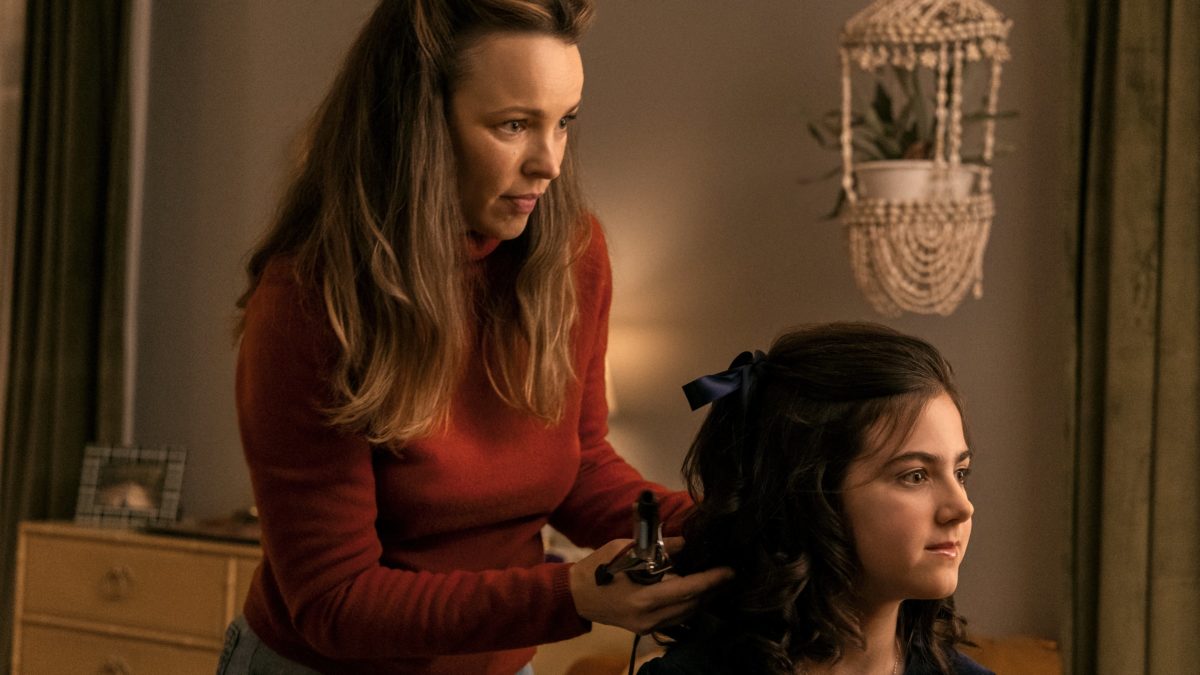Like the title, there's a period at the end
As an adaptation of the universally-known and -loved novel from 1970, it is what you would expect: nostalgic and rosy and clearly a piece of “warm-hug cinema.” It’s more than that, though. Are You There God? It’s Me, Margaret is as generous and insightful as any coming-of-age film in years despite being such a throwback. It elevates the genre into somethingf special.
Many of the kind things I’d say about the movie I’d also say about the seminal young adult novel by Judy Blume. It is honest about the challenges of young adulthood, incisive about both the highs and lows of social life at the age of eleven, and a joy to spend time with. In spite of the changes to social and gender mores in the past half century, this is a feminist story that depicts its title character (by which I mean Margaret, not God… although sorta) as a multitudinous, growing person of dignity and psychological complexity.
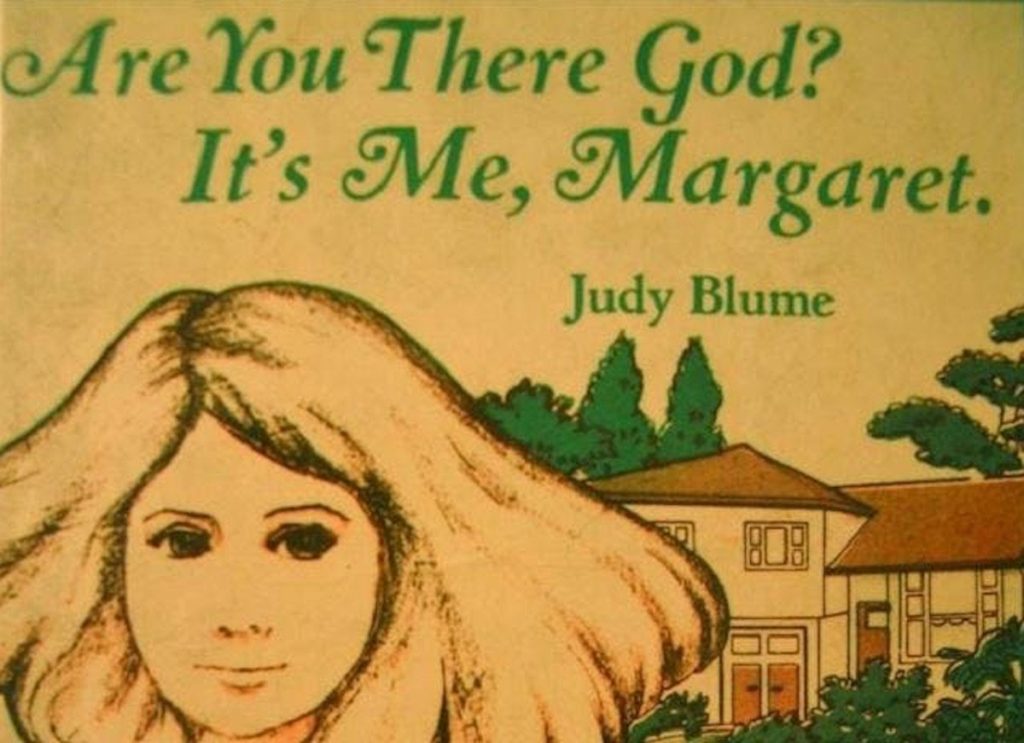
I’m stumbling through platitudes already; forgive me. This is the first film of 2023 that I’ve deeply and unreservedly loved, and though I may oversell what is ultimately a humble little film, I can’t help myself. I just feel a lot of affection and good vibes. Let me take a step back.
Are You There God? It’s Me, Margaret – a mouthful of a title – is the second feature film by Kelly Fremon Craig after The Edge of Seventeen, another coming-of-age comedy with a well-drawn female protagonist. Craig immediately enters the list of directors whose future films I will follow very closely.
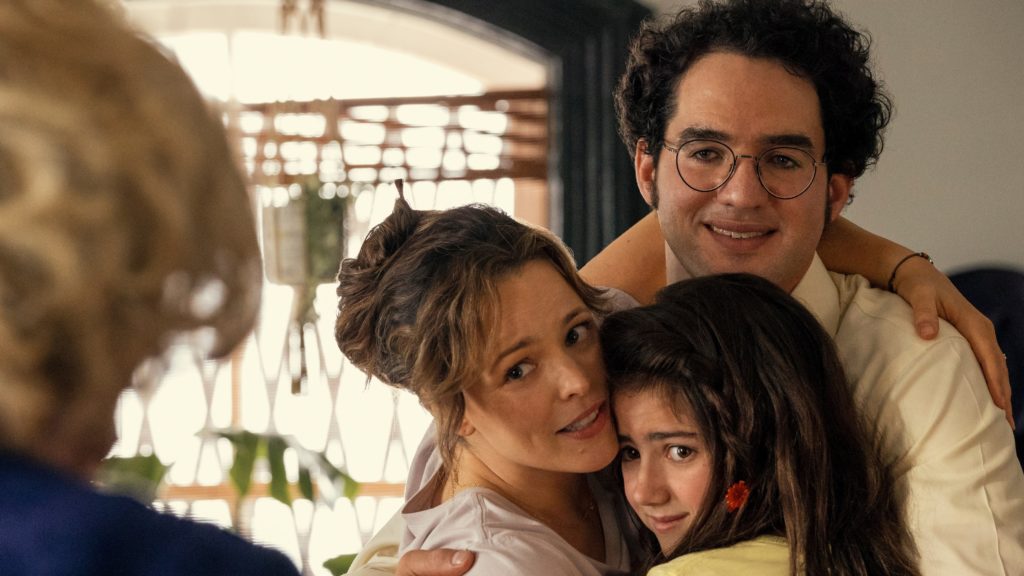
The story follows Margaret Simon (Abby Ryder Fortson) as she goes through her first school year in New Jersey after moving out of New York City. (The early scenes of the film have some fun at the flipped cliche of the city being a haven of childhood innocence and the cozy suburbs being a battlefield of stress and moral murkiness.) Along the way she makes some friends – including the self-appointed queen bee Nancy Wheeler (Elle Graham) – has a crush, buys a bra, wonders when she’ll get her period, and sneaks a peek at a Playboy magazine. The latter is another delightful reversal of the cliche; here, it’s the girls who are curious at what a sexually liberated woman, an object of desire, looks like.
Margaret also struggles with spiritual and religious identity. Her mother (Rachel McAdams) is a former Christian raised by devout Born Agains who cut her off when she married a Jew. Her dad (Benny Safdie) is culturally Jewish, but in the way where you might talk about really liking bagels rather than actually going to temple. Margaret is very close to her dad’s mom (Kathy Bates, even more charismatic than usual), who is a stereotypical New York Jewish woman getting ready to retire to Florida.
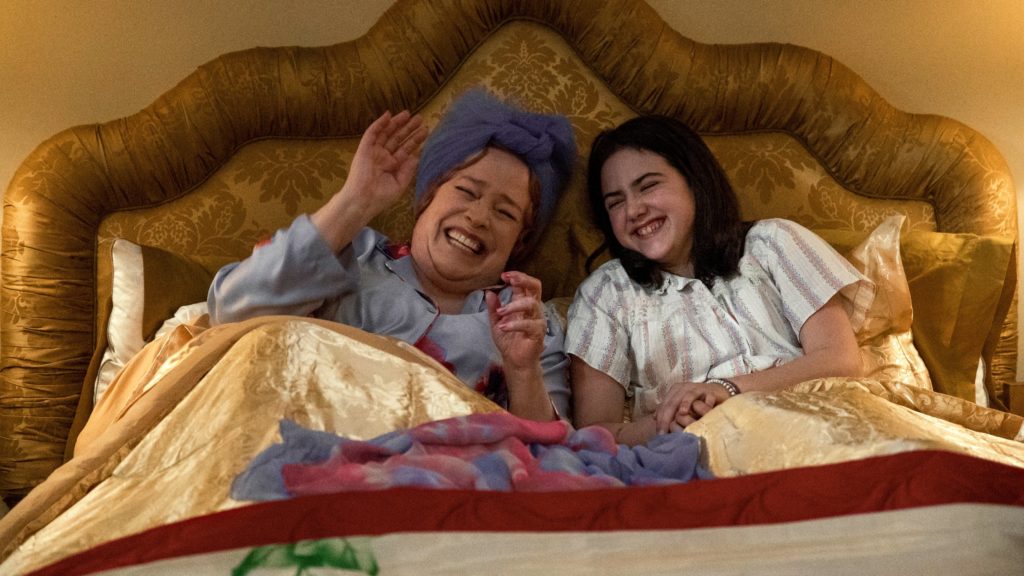
Throughout the film, Margaret tries to discover what version of God, if any, she believes in. She “tries out” different religions as part of a school project from an idealistic young teacher (Echo Kellum). And though her grapples with religion are a bit shallow and simplistic, that’s by design – she’s an 11-year-old trying to make sense of the complex notion of “God” and how one relates to Him.
All of this plays out in an inviting portrait of 1970 suburbia. The color scheme is full of warm yellows and browns, punctuated by some incredible ’70s fashion. The production details are outstanding — magazines and furniture and props. The soundtrack is filled with needle drops that add to the film’s hazy sense to comfort.
The movie lingers on the tough questions and awkward scenarios just long enough for them to have a punch; never so long that you’ll be squirming in your chair. It’s a gaze of a perfect distance — not so interior as to put the audience through the same wringer as Margaret, yet not so shallow as to fleeting glance off of us. The deepest pierce into Margaret’s psyche comes late in the film: the dark climax is a real pre-teen existential crisis of a crumbling world (like the islands in Inside Out), which is something else Craig achieved in Edge of Seventeen.
It feels so different from the recent coming-of-age canon. Nearly every coming-of-age or teen film of 2022, even the good ones, lean on slang-filled banter for breezy comedy (e.g. Do Revenge), or else weigh down its sense of fun with preachiness (e.g. Armageddon Time). A couple movies do both these things (e.g. Not Okay)! Are You There God? It’s Me, Margaret manages to be both breezy and profound without either pandering faux-teen dialogue or heavy-handedness.
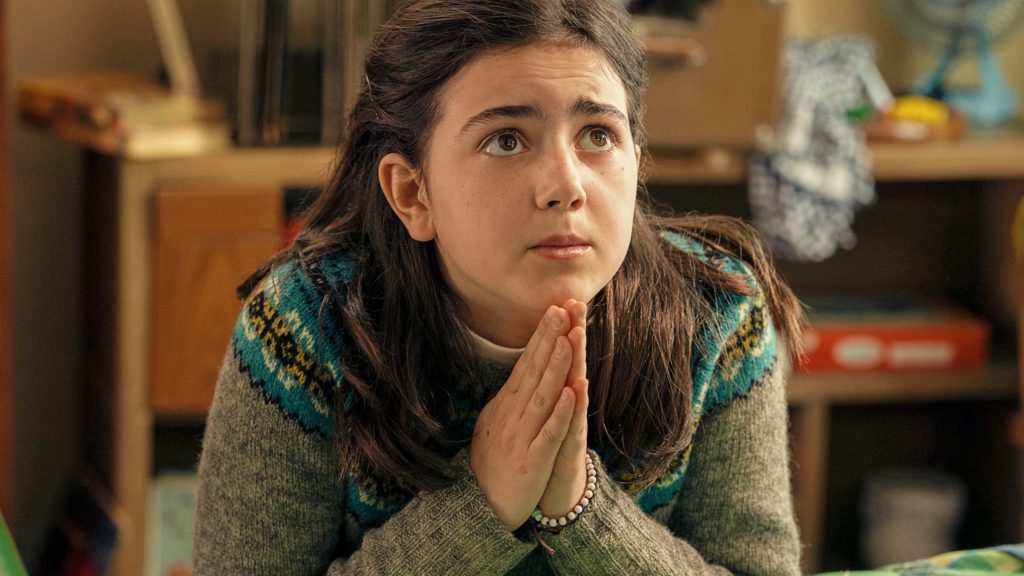
The movie’s secondary story follows Margaret’s mother, Barbara, as she struggles with her own new suburban identity as a stay-at-home mom. It serves as a mirror to Margaret’s story, showing how social pressures and shifting identities are not exclusively challenges for tweens, but something we struggle with our whole lives. This material was invented for the film rather than pulled from the book. It’s been awhile since I read it, so I don’t recall specifically how much insight we get on Margaret’s mom, but it’s certainly not as deep what the movie offers. Craig has constructed some compelling material, and McAdams really elevates it, but it’s nowhere near as strong as the stuff adapted from the book, as it feels a little more weighed down with cliches rather than seamlessly skirting and/or subverting them. Showing a PTA as try-hard and toxic is hardly a fresh spin.
Much of the movie’s strength comes down to the cast. Based on this and The Edge of Seventeen, it seems one of Craig’s strengths is getting the most out of her actors. Fortson, Graham, and especially McAdams give phenomenal and rangy performances, spanning from infectious buoyancy to pathos as each scene requires. McAdams, in particular, shows quiet strength with barely concealed doubts about her new suburban life. In a just world, she would be an Oscar contender. Safdie is there more for comedy than anything, but he’s a treat. The entire supporting cast of kids is charming — none of them have awkward “kid actor” stiffness.
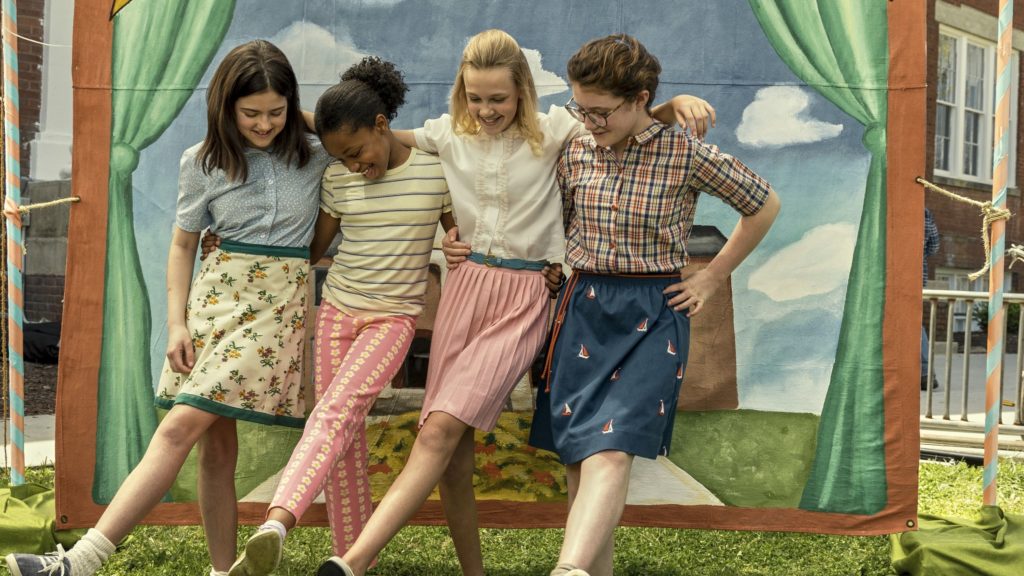
It’s not quite perfect; there are a small handful of scenes and threads I wish Craig had handled differently. As generous as the movie is with most of its characters for its runtime, it stops short of giving Barbara’s parents any depth (their climactic appearance explodes and disappears too quickly). The last few scenes with Nancy Wheeler feel a bit too sour, too; though anything too trite would have felt inauthentic. The directness of the script in tackling its issues does feel a bit stodgy now and again, though still so affecting and deft with its touch.
I guess what really matters is that this movie made me laugh about 20 times and cry about five times. There are a million lovely little moments. My heart expanded two sizes, most especially during the indescribably perfect final scene between Margaret and her mom. (When you watch, notice the clever use of “oh my God!” at that moment.) The film has moments that already feel iconic; “we must increase our bust!” should be an entry in the cultural lexicon if it isn’t already. Are You There God? It’s Me, Margaret is, in short, best movie yet released in 2023.
Is It Good?
Exceptionally Good (7/8)
Awards, Honors, & Rankings
- The B.A.D.S. (2023) - Best Scene (Margaret's first period) (Nominee)
- The B.A.D.S. (2023) - Best Actress (Abby Ryder Fortson) (Nominee)
- The B.A.D.S. (2023) - Best Supporting Actress (Rachel McAdams) (Nominee)
- The B.A.D.S. (2023) - Best Picture (Nominee)
- The B.A.D.S. (2023) - Best Screenplay (Nominee)
- Favorites of the First Half of the 2020s - Selection
Dan is the founder and head critic of The Goods. Follow Dan on Letterboxd. Join the Discord for updates and discussion.

